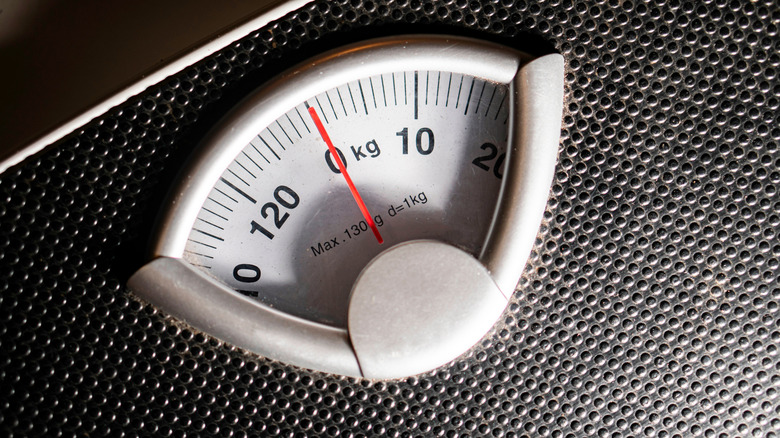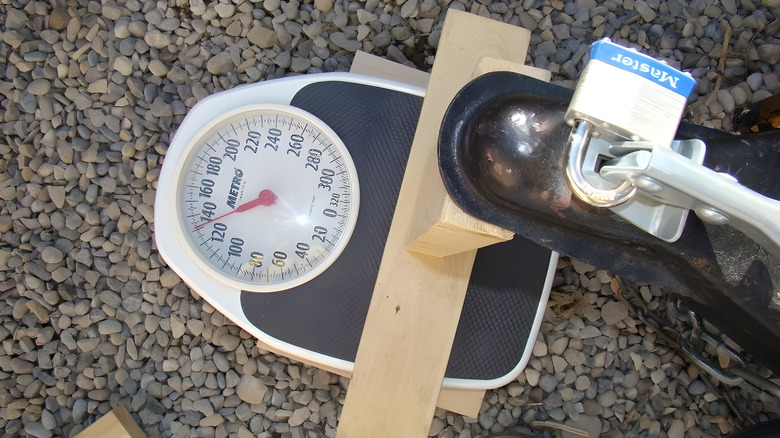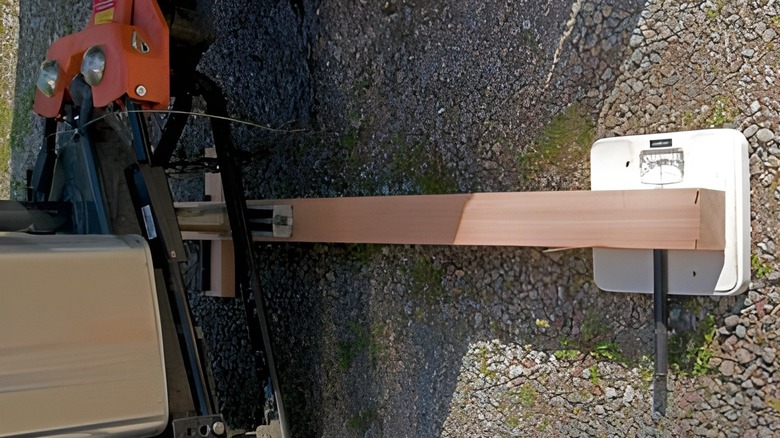You Can Estimate Your Travel Trailer's Tongue Weight With A Bathroom Scale - Here's How
If you're safely towing a trailer, one of the most important numbers you need to know is the tongue weight — also called hitch weight or trailer nose weight. It is the weight that your trailer's coupler puts on your tow vehicle's hitch. It plays a critical role in towing stability, and incorrect tongue weight – whether too low or high — can lead to trailer sway, reduced braking performance, or unsafe handling. The general guideline is to aim for 10 to 15% of your trailer's total loaded weight on the hitch.
The classic ways to calculate are a dedicated tongue-weight gauge or a trip to a CAT scale, but those cost money or miles. The cheapest and easiest one is with a standard analogue bathroom scale — the same kind you'd use to weigh yourself. To make it work, you'll need a non-digital scale that reads zero before use, a solid 2x4 or similar board about four feet (or more) long, two short pieces of steel or PVC pipe, and a brick, cinder block, or anything sturdy enough to act as a level support. You might already have all these things in your garage, and all you have to do is set them up as a basic lever setup and take an estimate. It's not recommended to use it for heavy-duty trailers with high tongue weights, but for a small travel trailer, it's an easy and surprisingly accurate solution. Here's how it works.
How to measure your trailer's tongue weight directly with a bathroom scale
If your travel trailer is on the lighter side and the tongue weight falls safely within your scale's limits, there's no need to build the lever setup, as the bathroom scale alone would be enough. Just make sure your trailer is packed the way it will be during travel, parked on a flat, hard surface, leveled front to back, with wheel blocks in place, and the coupler set roughly at towing height.
Then place the scale beneath the trailer jack and lower it gently until the full weight of the tongue is supported on the scale. If the trailer jack is too high, use one of the wooden blocks to close the gap. But if the tongue weight is too heavy for your scale — or if you're unsure — that's where the lever method comes in.
How to weigh a travel trailer tongue weight that exceeds your scale's limits
Start with your bathroom scale placed flat on the ground with the brick (or another support surface) about two feet away from it. The brick and scale should be the same height off the ground. Next, place a short piece of pipe across the scale, another across the brick, then lay your 2x4 across both pipes. The pipes help distribute the weight evenly across the surface they're resting on, and allow the 2x4 to move around if needed.
Adjust the pipe on the brick to be one foot away from where your trailer jack would sit, and the pipe on your scale two feet in front of it. Set another sturdy wooden block on top of the 2x4, under the jack's position — this is where you'll lower the trailer's tongue jack. Once everything is lined up, make sure the scale reads zero before slowly lowering the trailer coupler onto the wooden block you just placed on the 2x4.
Because your trailer jack is positioned one foot away from the brick-side pipe and two feet away from the scale-side pipe, the scale is only registering one-third of the real tongue weight. Whatever number your scale shows, multiply it by three to get your true tongue weight. If the scale-side pipe was three feet away from the other pipe, the scale would register one-fourth of the actual tongue weight, and you would need to multiply the initial measurement by four. Either way, ensure the final tongue weight still falls within 10-15% of your trailer's total weight to be extra cautious. If you adjust anything on your trailer after this calculation, you'll need to recalculate. That number only holds if your trailer load does, too.


